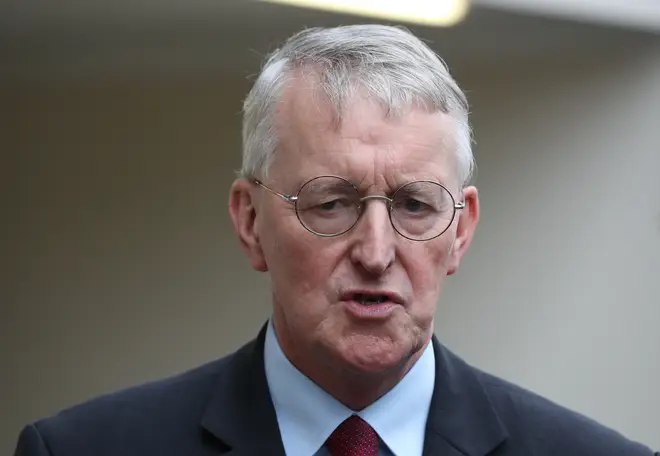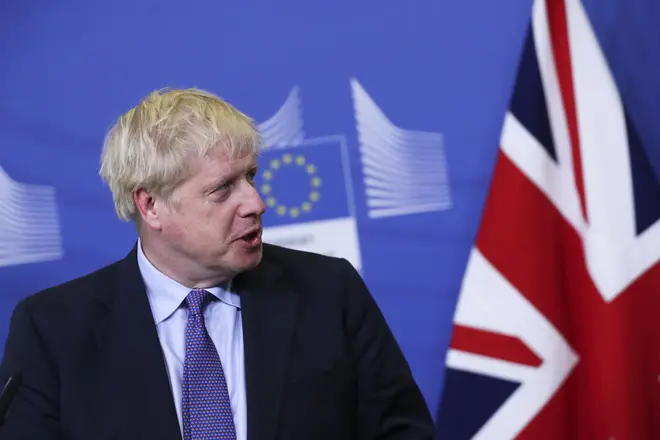
Simon Marks 3pm - 7pm
17 October 2019, 16:29
MP Hilary Benn says what concerns him most about Johnson's deal is the British-EU economic arrangement proposals which he calls "worse than Theresa May's" and could "cost British businesses about £15 billion a year."
The Labour MP said that all the focus is on the revised Irish backstop arrangements but what concerns him is the revised political declaration, the arrangement which outlines what kind of future economic relationship the British government wants to have with the EU.
"In that respect, this deal is worse than the deal that Theresa May brought before in the House of Commons, because the Prime Minister's made it quite clear he wants a free trade agreement like Canada."
Benn said it means there'd have to be customs checks, rules of origin checks and regulatory checks, and British businesses would have to fill in forms that they don't have to at the moment to trade with the EU.
"43% of our exports go to the other 27 members of the European Union," Benn said, "and last week HMRC said that filling in customs forms for the European Union would cost British business about £15 billion a year. So there's potential delay cost bureaucracy."

Benn said that spokespeople of British success stories in the industrial, aerospace, pharmaceuticals, chemicals, food and drink sectors have said this would be a "really bad idea for the economy."
"The government's own assessment of the free trade agreement with the EU says it would have the second worst outcome for the British economy, the lost growth, second only to a no deal Brexit which we're very strongly opposed to and for which there's no mandate for the referendum.
And I think as people absorb what's in here, I hope the attention will turn from the backstop, which is important of course. But to what really matters: the whole of our future relationship with the nearest and most important trading partners."
Shelagh asked whether commitments on environmental standards and worker's rights have shifted and weakened, compared to Theresa May's deal and Benn replied that everyone is in the same position, currently pouring over the proposals.

Benn said that when the government tabled their original proposals, "they said we don't want to stick to what are called the level-playing field commitments Theresa May had entered into."
"From the EU's point of view if you say to a trading partner we want full access to your market, we don't want tariffs, we don't want quotas, but by the way we might undercut you on worker's rights standards, or whatever it is, do not be surprised if the people with whom you're trying to conclude such an agreement say we're not going to let you do that because that will put our businesses at a disadvantage."
He continued that we need better worker's rights and environmental standards and if those commitments have moved from the Withdrawal Agreement, which is a legally binding treaty into the Political Declaration, which is a statement of intent about the future relationship we want to have that is not legally binding, "quite rightly" it'll make people anxious.
Benn said: "That's another reason I won't be voting for this deal."